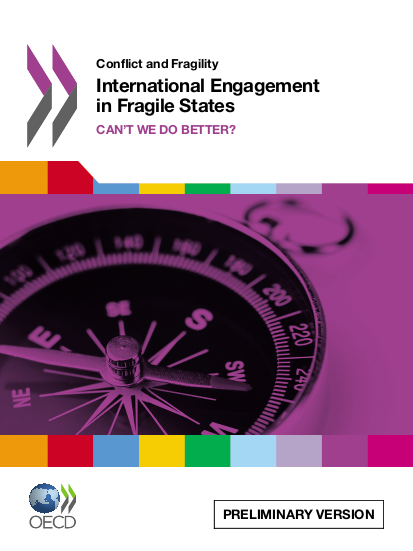
In 2009, one-third of all aid to developing countries went to fragile states. Yet in the world’s most difficult development situations, poorly conceived involvement can do more harm than good. Challenges such as poor security, weak governance, limited administrative capacity, chronic humanitarian crises, persistent social tensions, violence or the legacy of civil war require responses different from those applied in more stable situations. To guide complex interventions in fragile and conflict-affected countries, development partners committed, in 2007, to ten Principles for Good International Engagement in Fragile States and Situations (FSPs). The FSPs were designed to improve development efforts in fragile and conflict-affected countries, which are home to more than 1.5 billion people and farthest away from achieving the Millennium Development Goals (MDGs). Recognising the complementarity of the FSPs with the principles of the Paris Declaration on Aid Effectiveness, in 2008, the Accra Agenda for Action (AAA) called for voluntary joint monitoring of the FSPs at country level. This report presents the results of the Second Monitoring Survey on the implementation of the FSPs. It is based on consultations in 13 countries (up from 6 in 2009) that have taken up the AAA call to monitor development partners’ adherence to the FSPs, supported by the international community with a central role played by UNDP. The report contains a number of important findings that should serve as a wake-up call to development partners to shift their level of understanding and engagement by seizing the unique opportunities that today’s changing international context provides.
